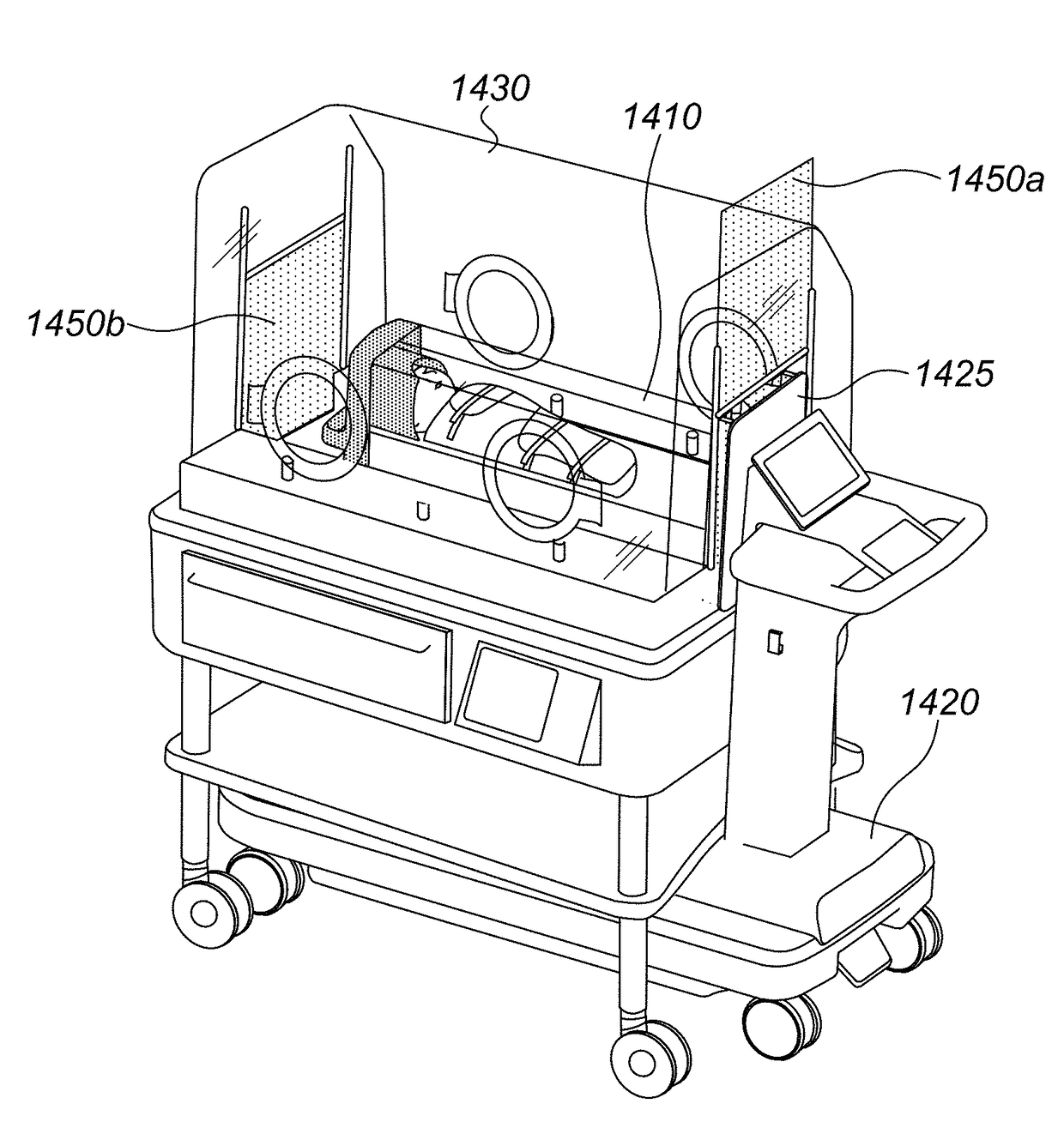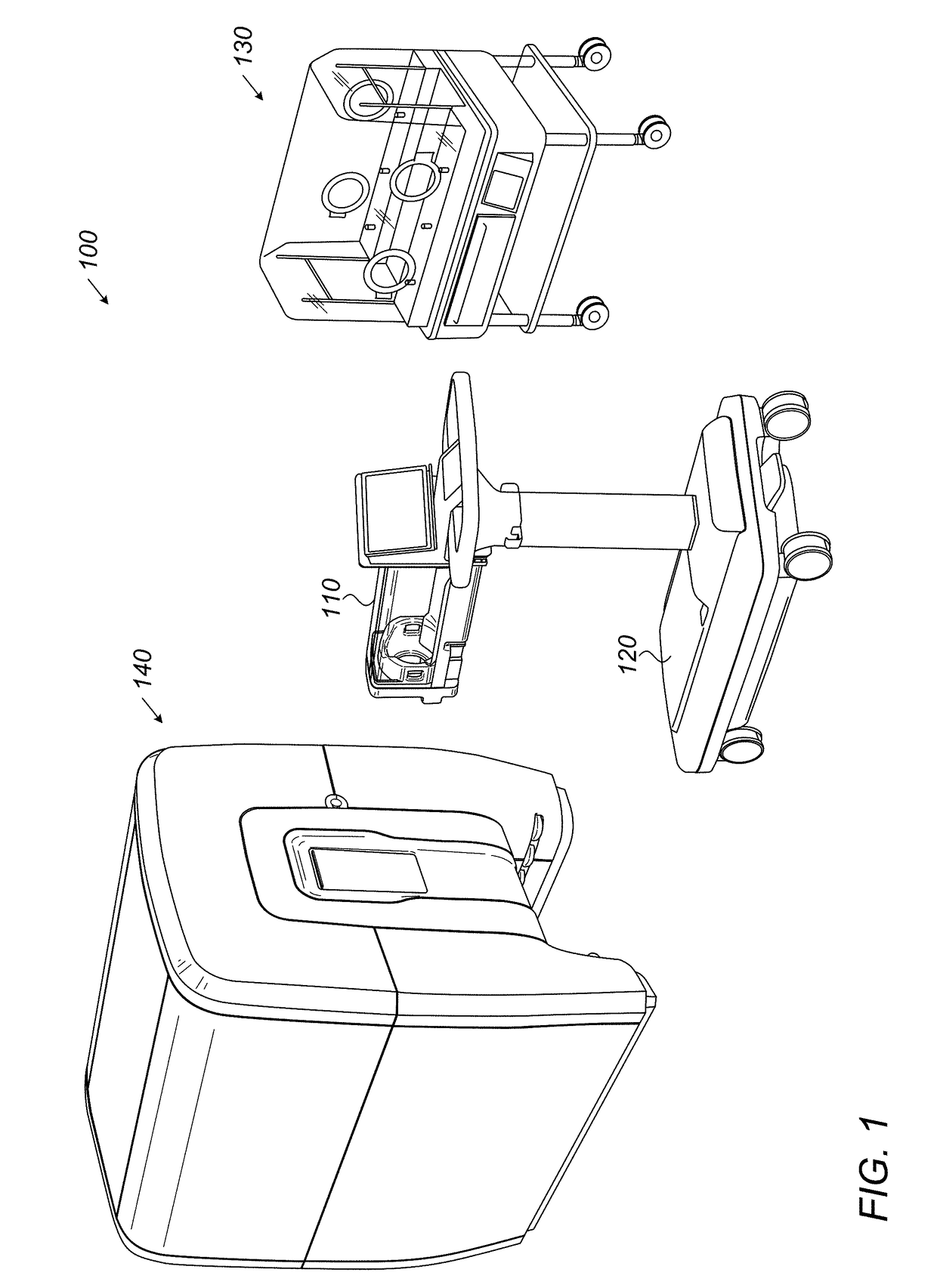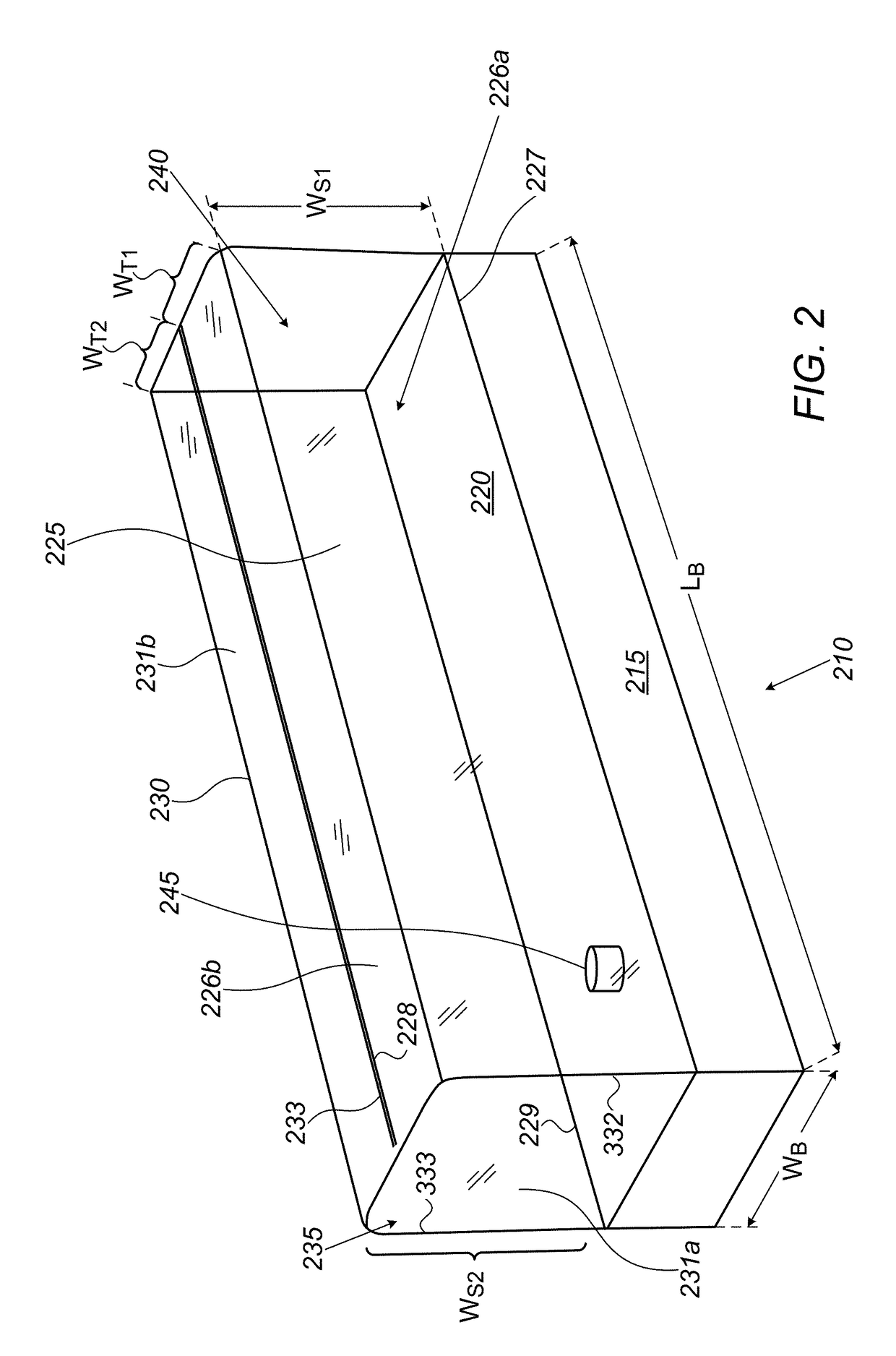Devices and methods for a neonate incubator, capsule and cart
a technology for incubators and neonates, applied in the field of neonate incubators, can solve the problems of further disturbance of the detriment of the disruption of the baby's physical position and/or environment, and the inability to monitor and/or vary the environment of the baby, so as to achieve the effect of reducing the amount of help, facilitating the transport of the baby, and avoiding the risk of infection
- Summary
- Abstract
- Description
- Claims
- Application Information
AI Technical Summary
Benefits of technology
Problems solved by technology
Method used
Image
Examples
Embodiment Construction
[0087]FIG. 1 is a diagram showing a system 100 for housing and transporting a baby for imaging, according to an illustrative embodiment of the invention. The system 100 can include a first incubator (e.g., capsule incubator) 110, a cart 120, a second incubator (e.g., dock incubator) 130, and an imaging device (e.g., MRI device) 140.
[0088]During operation, a baby (not shown) lies within the capsule incubator 110. The capsule incubator 110 can be positioned within the dock incubator 130, connected to the cart 120, or positioned within the MRI device 140. In some embodiments, the capsule incubator 110 is positioned in any desired location (e.g., other imaging devices, examination table and / or operating table).
[0089]The capsule incubator 110 can be moved between the dock incubator 130 and the MRI device 140 (or any desired location) via the cart 120. Life support equipment (not shown) attached to the baby can remain intact when moving the baby from the dock incubator 130 to a desired lo...
PUM
 Login to View More
Login to View More Abstract
Description
Claims
Application Information
 Login to View More
Login to View More - R&D
- Intellectual Property
- Life Sciences
- Materials
- Tech Scout
- Unparalleled Data Quality
- Higher Quality Content
- 60% Fewer Hallucinations
Browse by: Latest US Patents, China's latest patents, Technical Efficacy Thesaurus, Application Domain, Technology Topic, Popular Technical Reports.
© 2025 PatSnap. All rights reserved.Legal|Privacy policy|Modern Slavery Act Transparency Statement|Sitemap|About US| Contact US: help@patsnap.com



